|
I usually try to avoid telling people what not to do and what not to eat. I've learned that we all still have an inner teenager inside of us, so when you say don't do "X" that is exactly what they tend to do. With that in mind... how about I say "I strongly encourage you to avoid a few things to live at an optimal level of health and vitality." Sounds a little less painful, right? So what are these things?
Sugar, Wheat, and Dairy. Or as someone smarter than me coined the term, The 3 White Devils. If I were to tell you that tomorrow you can't eat any of those things, what's your initial response? Would you have cravings, bouts of moodiness, bad temper, poor focus, a feeling of being depressed and empty, frustration, anger, bitterness and resentment? Did you answer yes to any of those? If so, thanks for being honest! But now the bad news...you might have a food addiction, because that list of symptoms were copied and pasted from a website (1) on chemical dependency and the symptoms that someone faces when going through that. Rather than checking into rehab tomorrow we hope to have a better solution for you, but first I want to break down how these things could be harming you. Sugar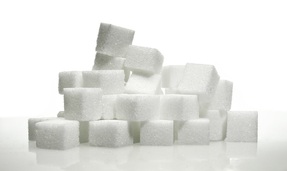
Out of the three foods mentioned this is the no brainer to most people. If you don't know yet that sugar is bad for you, I'm glad we could be the ones to let you know this groundbreaking news. Every once in awhile I do come across some blog post that claims sugar is a good thing and we need it to function. I would agree with that to some degree although there is some growing science to suggest organs like our brain can actually be fueled by ketones from fat rather than glucose from carbohydrates. I'll let the experts figure that one out.
The major issue with sugar is it's ABUNDANT use in nearly all processed foods. Food manufacturers have tried to sneak this little devil past us by calling it a whole host of things besides simply sugar. In fact, if I ever do buy something that is processed and contains sugar, I actually prefer the label to just say "sugar." Here is a simple list of other names of sugar that you will find on food labels. I am really excited for the new nutrition label to come out where they actually have to tell us how many grams of added sugar are in the items we are purchasing. I'm sure they will figure out a way around it but it's a step in the right direction. Basically that was the long way for me to tell you it is everywhere. Now why is it bad that it is everywhere? There are numerous things and some of them are well above my knowledge level. I'll stick to a few basics. The first one: blood sugar disregulation. When we consume lots of sugar, especially in the absence of protein and fiber, our blood sugar will spike. This leads to a spike in insulin, a hormone secreted by our pancreas. Insulin basically acts as an usher. Glucose, the form of sugar in our blood, is like the drunk fan stumbling up and down the stairs looking for his seat at a sporting event. If he stays in the blood (stairs) he will certainly cause harm. Insulin kindly tells glucose to have a seat. Glucose has a few different options on where it can sit, thankfully. The majority of glucose will be stored in either the liver, muscles, or fat tissue. You may have heard of fatty liver before? That is basically when your liver becomes engulfed in too much sugar and packs on some pounds. Some sugar storage in the liver is necessary but we've taken it way too far. Next up, muscles...this actually is one good spot for sugar to hang out. When stored in muscle tissue it gets converted to glycogen which is fuel for our muscles. These seats don't open up all that often though, unless you are doing a lot of high intensity exercise or heavy lifting. Lastly, fat tissue is the place where sugar tends to get shipped off to. These are the cheap seats, there's always more room here. You can maybe make the connection, if we don't exercise and deplete our muscle glycogen, yet consume high amounts of sugar and carbohydrate bad things happen. We damage our livers. We increase the size of our fat cells. We slowly build up a tolerance to insulin which leads to Type 2 diabetes and obesity...Bad news!!! On top of all of that sugar, it has also been shown to be highly addictive, pro-inflammatory, and the source of the worst kind of cholesterol, VLDL. I'm glad we are all on the same page now... Sugar is BAD!!! Wheat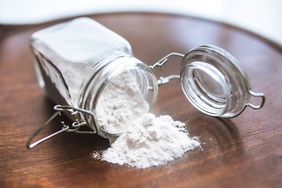
When we talk about wheat we really mean flour since nobody eats just straight wheat, it gets processed into different flours, maybe enriched, then turned into so many food times at the grocery store. Once flour gets into the body it actually acts very similar to sugar. We are talking about both white and whole wheat too. Yes, whole wheat is a better option because of the higher fiber content but both have similar side effects on your blood sugar and gut issues. Here is a crazy stat for you: the glycemic index of a piece of white or whole wheat bread is actually higher than 2 teaspoons of straight table sugar. Glycemic index is the measure of how fast a certain food will raise your blood sugar. That just blows my mind that bread will actually be soaked up into our blood faster than actual sugar. NOT good!
The other issue with flour is that buzzword...Gluten. This is a huge topic right now in the health world. The science is still really new on this topic so it is hard to trust all of it. Here's what I've learned and what I believe most would accept as fact: wheat that is harvested today is a lot different than wheat that was harvested 50-60 years ago. This mainly has happened because of hybridization of wheat and has thus increased the size of the gluten protein in wheat. More fertilizers are also used on wheat today than in the past. More products containing wheat are on our grocery store shelves. Here is where the science gets a little murky. Gluten, according to some research, has been shown to cause issues in ALL individuals. Basically what this research has shown is that the gluten protein essentially punches a hole through your intestinal wall and gets into your bloodstream. Your body's immune system then has to neutralize these proteins that shouldn't be in our body and that is what leads to inflammation throughout our bodies and autoimmune diseases. Some people's guts heal quickly and they can continue to consume wheat products while more and more people are having adverse reactions. If you want to read about how I suddenly become gluten intolerant, I recently wrote about that and you can read that article, Gluten, I Used to Love It! Now I'm Allergic! Here's my take on wheat! It provides very little nutritional value yet substantial carbohydrates and calories. Let's be honest, wheat isn't going to make you healthier and based on the trending science it will likely make you more sick. In case you are wondering about the fiber in whole wheat products, that can be easily taken care of by eating more vegetables. Calorie for calorie veggies win in the fiber contest! People today have wheat-centric diets. Everything needs to be on a bun, bread, or noodle...and I think we need to reassess why that is! To me even if you don't have any sensitivities to gluten, I believe any wheat based products should be consumed very sparingly due to their poor nutritional value. Dairy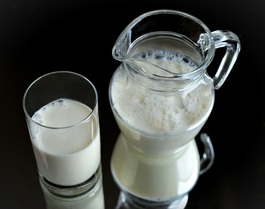
Oh man, I know I'm going to rub some people the wrong way with this section. Let me try to guess what you are thinking... "I can't give up my cheese!" Was I close? Did you know that cheese actually has similar addictive effects on the body as opiate drugs like Vicodin and Oxycotin. (2) That's just crazy, but I get it! I'm still addicted to it. I know my body doesn't do well with dairy yet the only thing I indulge in from time to time is cheese. It is just so good! Can you relate?
So other than the drug like effect on ourselves, why else is dairy potentially harmful? The main thing is a majority of people can't digest one of the main proteins in dairy, lactose. The % of people varies quite a bit depending on your ethnicity but when you average them all out, 60%+ are intolerant to lactose. (3) Nearly 2/3 of the world population can't process dairy, yet many still do. Talk about digestive distress! Let's dumb down the human species to that of an animal for a second, for some it's not that far of a stretch. All baby mammals consume the milk from their mother. Fact! All mammals other than humans stop drinking milk after a weaning phase. Fact! Why do humans think we have some super mammal properties that we can do something that the entire animal kingdom has learned doesn't work for their species? So not only do humans continue to drink milk past infancy, they drink milk from a completely different mammal!!! Sounds kind of weird when you lay it out that way, doesn't it? Outside of the intolerance issue, another aspect of dairy that is troublesome is the quality of the dairy most people consume. You've probably all heard the line, "You are what you eat!" When it comes to animal products like dairy you have to take that a step further, "You are what you eat ate!" In the case of cow's milk dairy, whatever that cow consumed, you are consuming. That can be things like genetically modified corn and soy. These things are given to fatten cows up faster and increase milk supply, essentially making them metabollically sick. Another thing dairy cows are often given is a substance called rBGH (recombinant bovine growth hormone) or sometimes called rBST (recombinant bovine somatotropin). This is a synthetic hormone that increases the milk supply of cows. Once again you are what you eat ate! These hormones have been linked to a host of health issues in both cows and humans. (4) My challenge for you would be to test your tolerance for dairy by doing an elimination diet. Take it out for 1 week, maybe 2 then reintroduce it. Do you feel any digestive distress? Gas? Bloating? I believe there is a huge population out there going through life eating foods that cause issues, but they have no idea what they should feel like so they just accept their current health as the status quo. Don't be that person! What Can I Eat Then???
Our goal here isn't to scare you into becoming orthorexic and fear all food. We know that for a majority or people out there life can't go on without pizza, cookies and cheese and that's ok. We hope that if you read this post, you'll take a look at the percentage of your food that is coming from these 3 food items and scale them back. Most people would benefit from limiting these foods and be healthier, happier and probably skinnier.
If you still need more convincing on why these things are problematic we are hosting an online support/educational group on this topic. If you are interested in learning about finding alternatives to these items we will also be touching on that in our free free 5 Day Group. The group starts on Monday, September 28th. It will be setup on Facebook, so you will need an account. In this group we will provide information about healthy swaps, recipes, see if you are sensitive to any of these things and share a little more science on why you should limit these foods. If you are interested in joining us just follow this link and fill out the form.
1) http://www.medicalnewstoday.com/info/addiction/signs-of-addiction.php
2) http://greatist.com/health/cheese-addictive 3) http://usatoday30.usatoday.com/tech/science/2009-08-30-lactose-intolerance_N.htm 4) https://www.foodandwaterwatch.org/factsheet/what-research-shows/
We have always known that KNOWING where our food comes from is really important...but it was still cheaper to get 2 dozen organic eggs from Costco. Just being honest here!! Sue me.
BUT, when a friend of ours (Sara) said she raises chickens and sells their eggs I knew we had to get on her list. We eat SO. MANY. EGGS. Seriously. It's ridiculous. We go through about 6-8 eggs per day. Yes. SO. MANY. Haha!! We love them though and so does Eli, so we have them for breakfast pretty much every morning. As soon as Sara's chickens started laying eggs she messaged us (this last weekend) and said she'd bring 2 dozen to church the next morning and I kinda jumped for joy. My older sister, Sara (as well....weird)....raised chickens for a short time in Colorado so we had tried pasture raised chicken eggs before and they were SO good. Here's a picture of me holding one of her chickens a few years ago:
However...do you know WHY it's important to know where your eggs came from and what those chickens ate? To quote one of our favorite podcasts, The Model Health Show
"You are what you eat ate."
By that we mean any animal product you're putting into you body, you're also ingesting whatever THEY ATE as well. So choose your animal sources wisely!
Sara's chickens are pastured...meaning they have full access to outdoor area that is fenced for their safety. This is much different from "free range" which simply means according to the USDA the chickens have "access" to the outdoors for at least 50% of their lives. ALSO, don't mistake "Cage free" for being all that great...if they came from a big factory farm those chickens were probably just cooped up in a barn with a thousand other chickens...not technically in a cage per se...but not roaming free and able to eat whatever they want. "Cage free" and "Free range" aren't necessarily better...even though we all get misled by the terms sometimes. I know I did!! That's why knowing where your eggs come from (if you have that ability) is really important. Click here for a great article explaining more about this. Sara's chickens are fed non GMO feed with no soy and it's basically organic...just not certified organic yet because she gets it from farmers that are in the process of organic certification. Her chickens also get fresh fruit and veggies all the time and they add kefir, whey etc...when available! They also forage and eat bugs and weeds in their pasture and they sometimes reserve feed until the end of the day to force them to forage more which means they get more variety in their diet! Genius! That's why the yolks are so yellow (see picture below). Here are a few pictures of her beautiful chickens and her toddler terrorizing a few of them...or maybe they're terrorizing her, I can't tell!
And now the big reveal...we wanted to do a side by side comparison of the organic Costco eggs and Sara's pasture eggs...check it out. Can you tell which is which?? We won't leave you hanging...the one on the left is the pasture raised egg and the one on the right is the organic, cage free egg from Costco.
SO...if you don't have the option to pay a little more for quality eggs...that's fine!! I just challenge you to think about the foods that you eat ALOT of on a daily basis and think about slowly starting to swap IN a higher quality version!! Your health will thank you in the long run!!
We wanted to respond to the video that got massive attention last week. We don't even want to link to it but if you are so inclined to watch it you can find it by typing "Dear Fat People" into a Google search. The person that created the video is a comedian so you should take everything she says with a grain of salt. That said her basic premise was if we shame "fat people" enough that they will feel so bad that they decide to change. Makes perfect sense, right??? If someone is in enough pain, they will clearly choose to do something different. The problem with her argument lies in the physiological component to being overweight. She clearly has no training in anything and she just thinks that if people eat less and exercise more, presto change-o they become skinny.
Just to be clear, we should probably just blatantly say it out front, shaming people is an absolutely horrible way of treating people and it does NOT get results. This video also brings up the the topic that goes viral every other month or so of #loveyourself and "body positive" blogs that are out there. This is always a tricky subject to us especially since we are in the business of helping people get healthy and lose weight. This is where we want to dive in a little deeper...along with giving you a strategy to navigate your own health and weight loss. Within the "body positive" movement there is a theme of loving yourself for who you are whether you are fat or skinny. No matter your shape or size you should be ok with that and embrace who you are, #loveyourself. We totally agree with this...but what if we asked ourselves this: "Can you love yourself for who you are, and still try to improve yourself?"
The question itself is contradictory in nature. Why do you need to change if you love who you are? This is where some people in the "body positive" movement lose us. They take that thought and solely stick to the love yourself side of it. Thinking "I'm good enough the way I am and I don't need to improve". (For a little more reading on change and being "good enough" you can check out another post of ours where we talk about that exact topic, The "Good Enough" Principle - Ambivalence!) There are some in that movement that are certainly trying to improve their body composition and health. There are also people tucked away in a shack in Mississippi that are oblivious to all of this, they are "fat" and just don't care. I safely say that because those people probably don't have the internet and will never read this!
The graphic below is really helpful in helping distinguish where you might fall in your own personal health. We know that these categories aren't perfect and you may find some overlap in your current situation. We believe that everyone should be on an active journey to improve themselves AND that you can and should love where you are at currently. In fact we think in order to move forward in your health and fitness it has to be done out of love for yourself and wanting the best for yourself. In order to do that you need to take a good assessment of where you currently are though. Ask anyone that has navigated using a map and compass, the most important thing to know is to know your current location. That means getting honest with yourself and asking some tough questions...
This graphic and our descriptions might also help you understand that not all "skinny" and "fat" people will be in the same categories. Often times skinny healthy people just assume all overweight people are lazy and uneducated. Also skinny people are often thought to be healthy solely based on their body size, which we know isn't true. We breakdown these categories a little more below to bring clarity to these stereotypes.
So before we dive into each of these descriptions you should know why we chose Aware and Willing as the category headings and what they mean. By saying aware, we mean that people that fall into this category are knowledgeable with what it takes to be healthy. The science of what it takes to be healthy is constantly changing and there is new information coming out all the time. People in this category follow that information and know what it takes to improve their health and/or lose weight. By saying willing, we refer to the people that make an effort to do what they think or know is right.
Aware & Willing
They are "aware" of what it actually takes to be healthy and are "willing" to prioritize the things it takes to improve their health. It is because of this that this section of people are generally in good physical shape and generally healthy. This group doesn't have to be physically fit, but more importantly actively working towards improving their current situation. They actively seek out the latest in health trends and science to see what works best for them. They have made a commitment to their health and may even work in the industry.
Aware & Unwilling
This group is "aware" of what they need to do to improve their current health situation but have yet to make it a priority in their daily habits. There is a sense of ambivalence. They know why they should change and the benefits. They even know what they need to do in order to create a change. However they have a pull to keep things as they are. Change is hard. They may not have the support system in place that will support them if they start making changes. They may have a stubborn husband that enjoys his pizza and pasta, or coworkers that frequently go out for happy hour. They may feel they will be outcast by these people if they start making different decisions.
This group will likely not make a change until their health begins to affect something that they currently find a bigger priority. An example would be a mother with a toddler or young children that values time with her family above all else. Her kids are constantly wearing her out with all of their activities to the point where she can't keep up anymore. That may be the breaking point for her where she decides she needs to get in better shape. Unaware & Willing
This group makes up the biggest group of people from my experience. They all want to be healthy and even go to the effort of eating what they think is healthy food and working out in a way they think will improve their health but may or may not be seeing results. This group reminds us of the saying, "Work smarter, not harder!" This group hasn't quite figured that out yet.
Common things we hear from people that would fall into this category are;
This group of people, as stated in the chart, will likely cook a lot of homemade meals..but those meals will likely be comprised of packaged goods and will be heavy on the starches and unhealthy fats and low in protein. If we could sum this group up in one thought it would be... We eat "healthy" cereal for breakfast group. How do people move out of this group? It mainly comes through education from credible and current sources to formulate a plan that's going to work for them. The key there is individualized plan because what works for one doesn't work for all. One of the most common things we see here is with running. Often times runners are inherently skinny. We can say that because we both were former runners and both were skinny prior to starting our running careers. People from this group see skinny runners and think that running must have made them skinny, therefore they should run to get skinny. This would be like saying playing basketball makes you tall. Yes, running will work for some but it isn't the best way to lose weight in a healthy way for a majority of people. If you fall into this group and are curious about some resources that we have used to learn more about nutrition and exercise, we would love to share some of those with you. Just comment below or send us an email. Unaware & Unwilling
This group unfortunately makes up a decent percentage of our population. People in this group tend to have never done any research into health or nutrition other than what a doctor or the media may have told them. They may know that certain things like sugar and fast food are bad for them but fail to connect what they are eating to how they FEEL and their overall health. They may know exercise is important but their knowledge of what to do might be rooted in what they did in junior high gym class 30 years ago. The fate of people in this group usually tends to be more grim than positive. These people will likely battle chronic disease throughout their lifetime and will likely struggle with being overweight.
Thankfully people in this group can reverse the course they are on. It usually takes a friend or family member to intervene. Unfortunately it might take a health issue to force people to change. If you know someone in this group, reach out to them let them know you care and love them for who they are right now as they are! Where Are You Right Now?
The reason we wanted to write this post was because we want to share a BETTER strategy for losing weight than shaming someone. With that, we also want to put the focus on HEALTH because skinny doesn't mean healthy and carrying a little extra weight doesn't mean unhealthy. We do believe that we should all love, yet acknowledge where we are with our health, and actively be trying to improve upon it.
This world is going to bombard us with toxic things that harm our body and deteriorate our health. We will also face toxic things mentally that will try to break our will, lessen our belief in ourselves, and crush our dreams. That is why we need to constantly be working to improve our current situation because we just don't know what might try to trip us up next. If this post inspired you to make a change we would love to hear from you. If you need someone to just talk with about your current situation we are here for you!!
So I know I've alluded to it in a few posts and told some close friends but I wanted share with you all something that I've had to deal with this past year. I share it because I'm sure there is someone out there that is going through the same thing and I hope this message gets to you to help you relieve your suffering.
The thing that I've been dealing with is I am now gluten intolerant and most likely have celiac disease. I really don't want to start eating gluten again to get the formal diagnosis. I explain later how I came to this conclusion. I share this picture because just last September I wrote up a the post on our Facebook page talking about the hype behind giving up gluten. You can see that post here. At this point my knowledge of gluten was decent. However I knew very little about gluten sensitivities and celiac disease just straight manifesting out of thin air. That's basically what happened to me!!! The fully story... In late December I started noticing a rash on my underarms and down my upper arms. Given the location I thought it was maybe an interaction with my deodorant, so switched that up, nothing changed. I then thought maybe it was a soap or detergent, so switched those up, nothing happened. I then took out some foods, gluten, dairy, and soy. I did that for about a week and nothing happened at the end of a week. So I went back to eating the way I had. I should say that I wasn't eating a lot of gluten at this point, a little bread maybe once or twice a week, and I would have a beer maybe 4-5 times a week. After I did all of that trial and error I basically went back to "normal" stuff. That is when things got really bad. The rash spread to my face, back, chest and even into my legs. At that point I was extremely uncomfortable so I went to the dermatologist. They took a biopsy of the rash and prescribed some steroid cream to help calm down the rash. The biopsy didn't show anything, which was both good and bad. Good that I didn't have cancer or some other serious disease but bad in that I still didn't know what was causing the rash. I then did an environmental allergy test with the dermatologist. When I went in to get the patches removed, there was only one thing that I was allergic to and that didn't make any sense that that would be the cause. This was roughly mid February and I was still eating my normal diet. At this appointment the dermatologist wanted to prescribe me an oral steroid to help with the rash but I told her that I didn't want to take it. I didn't want to kill the rash, I wanted to figure out what was causing it. She was a little shocked that I would turn down drugs that would help with my symptoms. At this point she told me that only 10% of people ever figure what causes rashes like this! Wow!!! I could tell I pushed a button of hers, oh well! I left the office that day and was pretty upset! I was mad at the dermatologist that her main intent was to treat my symptoms. I was upset that 90% of people that have rashes like me go through life not knowing what causes it and likely take prescription medicine to manage symptoms. It made me all the more determined to figure it out. At this point I started having conversations with Laura's sister who was also struggling with similar issues as me. She was a little further along in the process of figuring out what was causing her symptoms and she was pretty certain that she had what is called dermatitis herpetaformis or DH. Simply put, celiac disease but a version that shows up through the skin and not the gut. It was right around April 1st that bit the bullet and cut out all gluten, including beer. I remained free and clear of gluten until the end of May. During that time my rash completely disappeared. That is when I reintroduced it! Of course I chose to use beer as my gluten source! Essentially what I had done was an elimination provocation diet. The results were a little confusing to me. I got together with some of my beer drinking buddies on a Saturday night. Sunday came and went and nothing happened. Same with Monday, Tuesday and Wednesday, I thought I was in clear! Then Thursday evening I broke out. I thought it was a little strange from a timing standpoint so I chose to test it again. This time I waited 3 weeks to "clear out" my system then did it again. Unfortunately I had the same outbreak with the same timing. I had my answer! I went from someone that had no symptoms of any gluten sensitivity to being allergic basically overnight. Strange, right? Now that I've started learning more about gluten and how it interacts with our bodies, it isn't so strange. Gluten is a harmful substance to everybody. Yeah you read that right, everybody. Some people can process it and not be "harmed" while others hit a breaking point and there body just says enough is enough. You might think that is pretty extreme to say that gluten is harmful to everyone. You might think it doesn't affect me. We consume toxins everyday in our foods and through things in our environment like our cleaning supplies and the air we breath. Our bodies do an incredibly good job of processing these toxins and eliminating them from our bodies. Eliminating these toxins creates stress in our body. If you start piling on too much stress at some point your body will be overwhelmed and break down. Doing my research about what causes DH, they often say it comes in 30+ year olds usually after a stressful situation in their lives. I'm blaming Eli our son, love you buddy but you've definitely increased the stress level in the house. As I stated earlier, my goal is for a light bulb to go off in someone's head and make the connection between the food you eat and chronic symptoms that you might be fighting. For some that may be rashes, headaches, achy joints, digestion issues, brain fog, fatigue and the list could go on. I would encourage you to think about the foods that you are eating. Pay attention to when symptoms get bad and what foods you ate recently. Don't discount the power of the things you put into your body! People don't think twice about medicine that they ingest affecting how they feel. I would argue food is just as powerful to both heal and hurt you. If you want to chat more about how to structure an elimination diet I would love to talk with you. You can email me here. Or if you just want to take it upon yourself I highly recommend the book, The Elimination Diet by Tom Maltere.
Who else loves Thai food??? Yeah I could pretty much eat it everyday. I love the flavor profiles of sweet, salty, sour, and spicy...it's just so good! The noodle dishes are probably my favorite when we go out to Thai restaurants. My go to's are Pad Thai, Pad See Ew, or Pad Kee Mao (Drunken Noodles). Given my new intolerance of gluten, I am a lot more cautious when it comes to ordering food at restaurants. I know most asian noodles are made from rice flour, but I guess I just have trust issues, especially when you add the sauce in on top of that. For example I had no idea soy sauce had wheat flour in it, prior to becoming allergic to it...and most Asian kitchens use soy in everything...so it just makes me a little nervous!
With all of that, I decided to try to recreate a Drunken Noodle dish to ensure that it is 100% gluten free. It's not a perfect representation of the authentic dish but it was pretty tasty.
Download Recipe Card for Drunken Zoodles
Each day we get a chance to start over...new beginnings. Here are a few ways we like to live on PURPOSE:
Live EVERY day. Don't just go through the motions!! |
The Cook & The CoachHealthy is a LIFESTYLE. Categories
All
Archives
November 2019
|
About Us
|
Contact UsAffiliate Disclosure
|
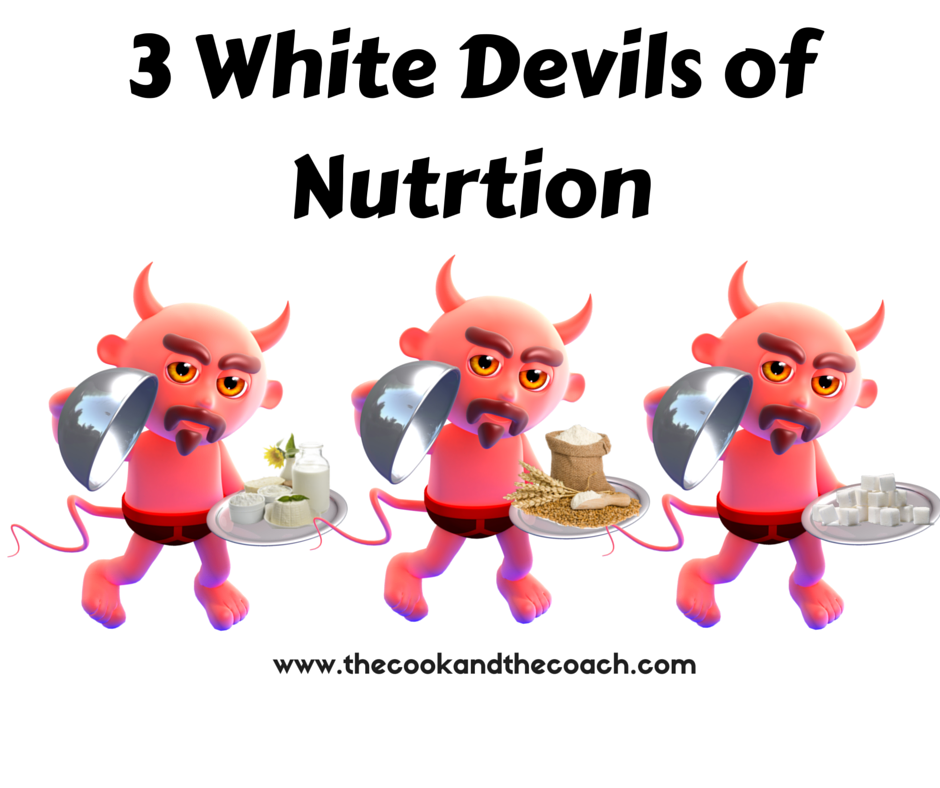
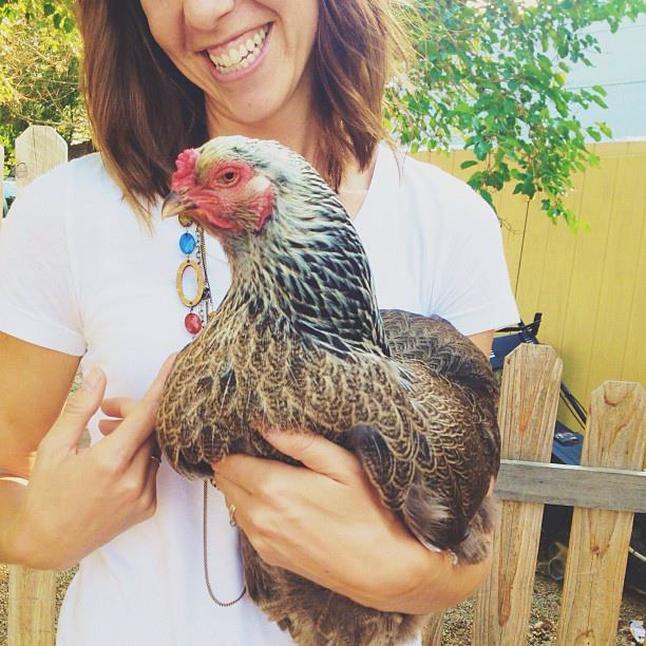
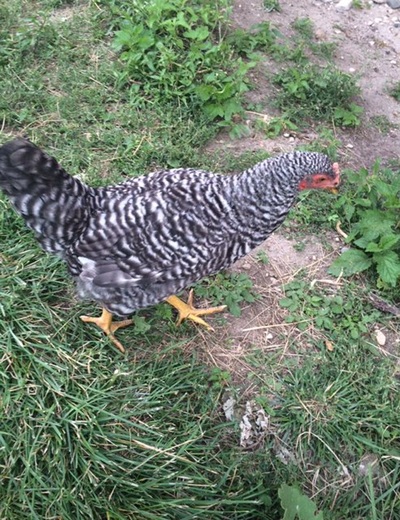
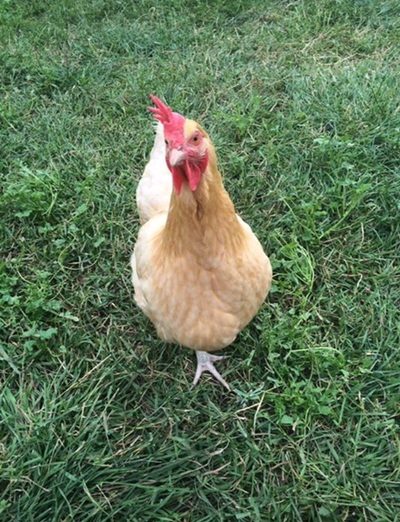

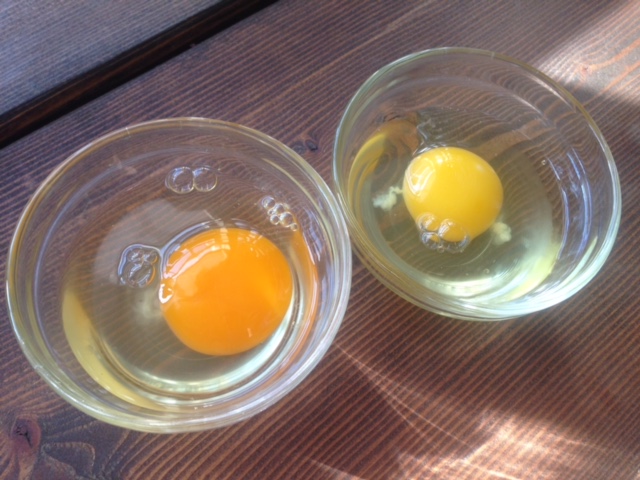
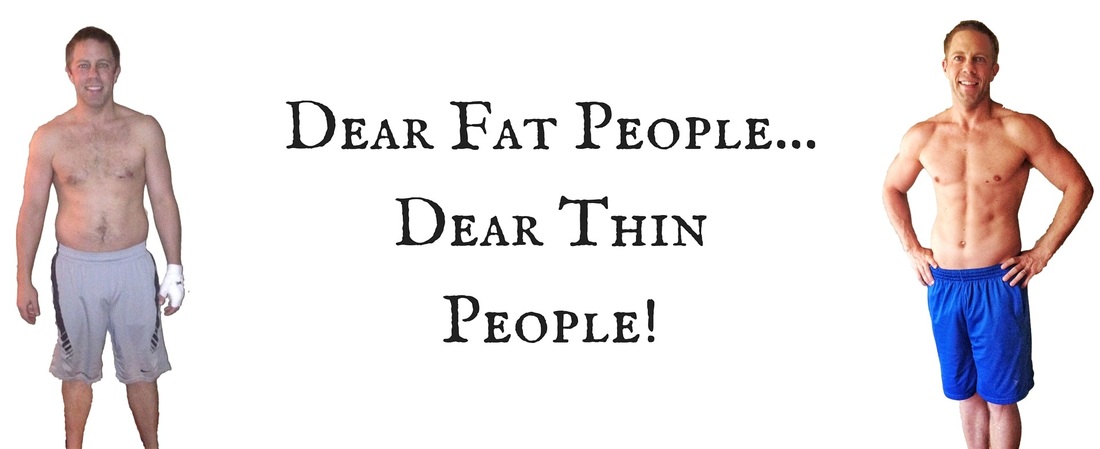
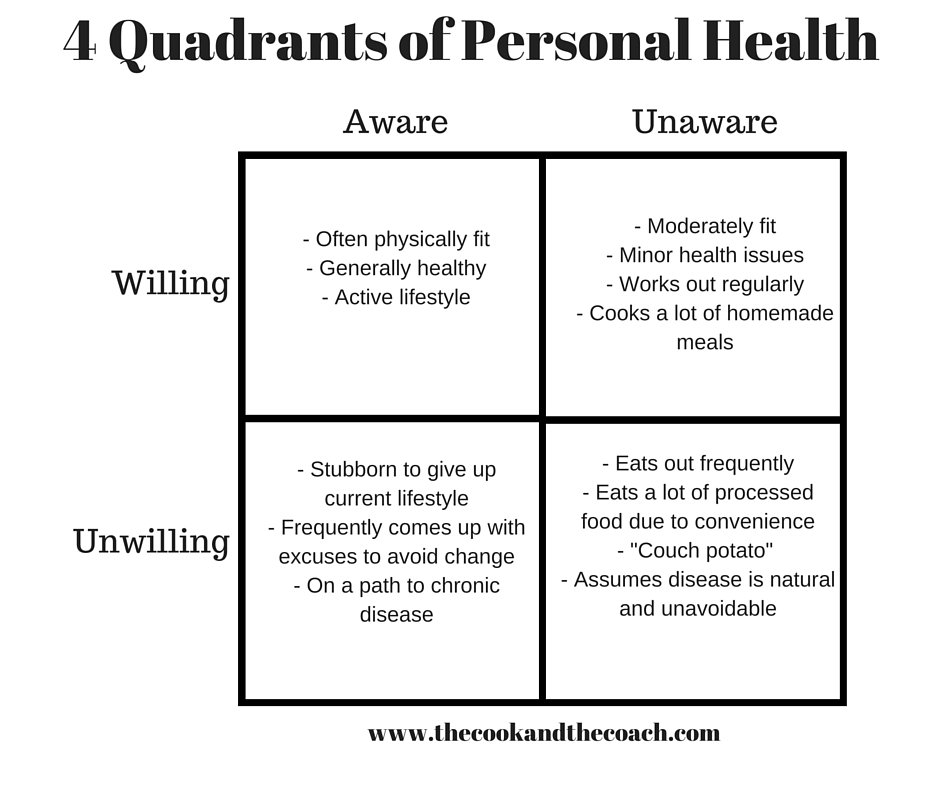

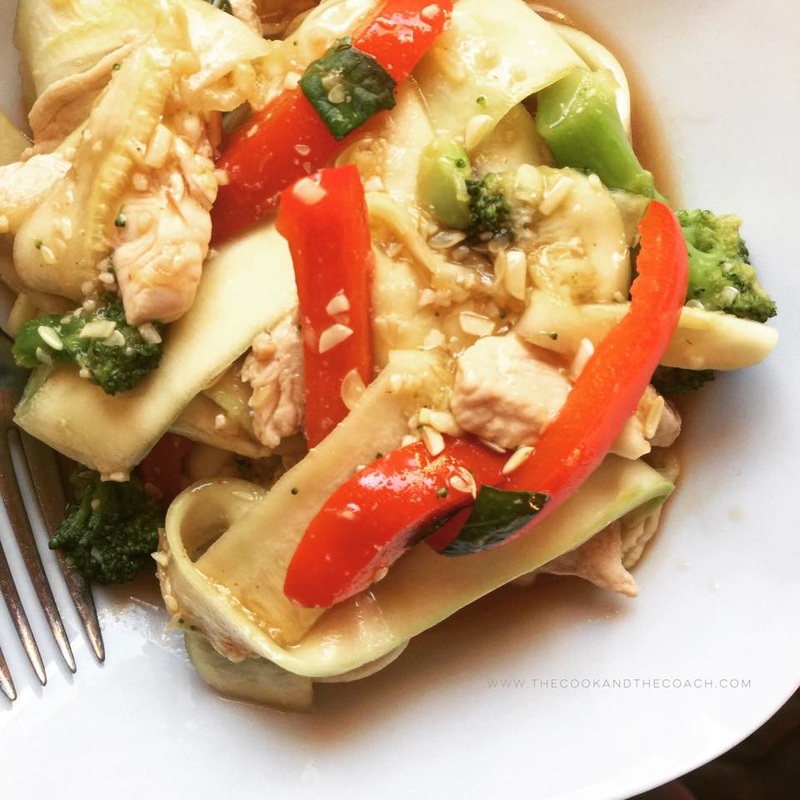
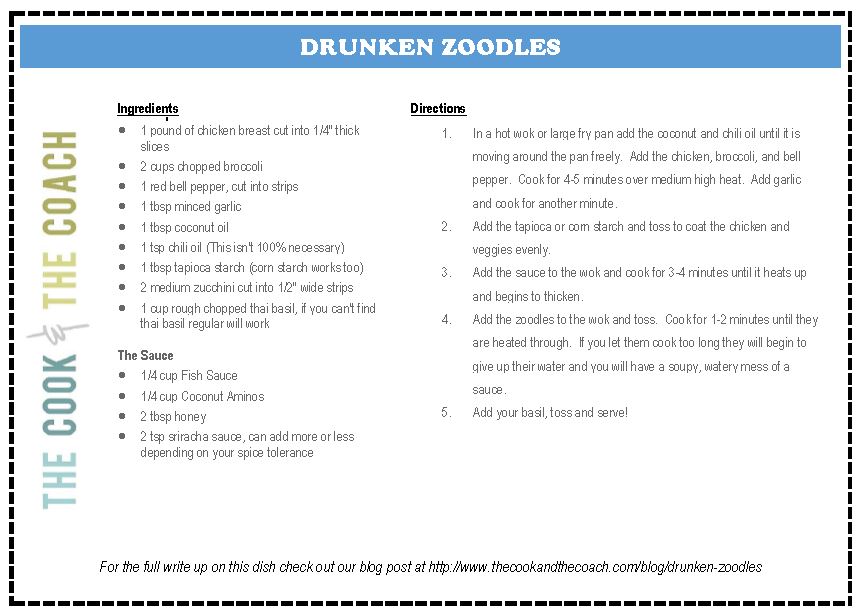
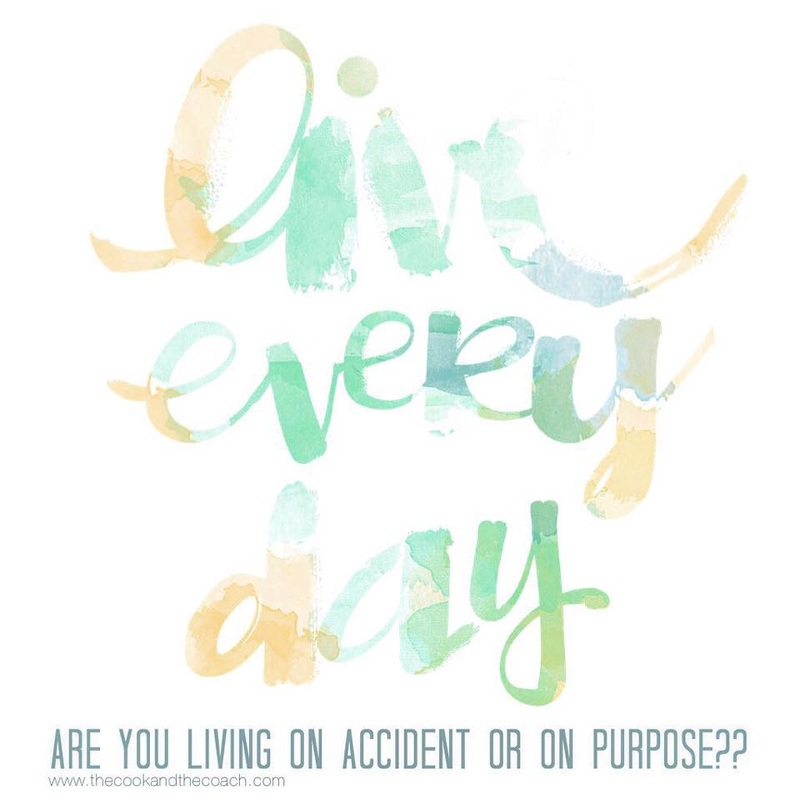

 RSS Feed
RSS Feed

